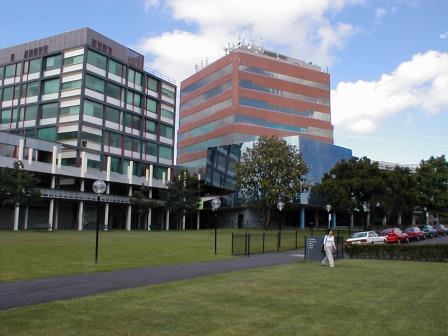Social connections keep workers on board says Monash Business School
Contrary to popular belief, new research suggests that some employees adapt well to pressures caused by changes in the workplace.
Pay cuts, reduced working hours, fewer training and promotion opportunities are just a few of the measures organisations employ to combat economic downturn and industry competition. Where previous research has suggested cutbacks result in a demotivated and unhappy workforce, experts from Monash University and The University of Iowa say this might not necessarily be the case.

A new study published in the Journal of Occupational and Organizational Psychology, shows some employees can respond positively to change in the workplace—but only if they are well connected and are a good fit for the organisation.
Dr Kohyar Kiazad from Monash University and Professor Scott Seibert and Professor Maria Kraimer from the University of Iowa used an online survey to find out worker’s responses to “psychological contract breach”—a term experts use to describe what employees experience when they believe their employer has broken its promises. Previous research suggested that withdrawing from work, reduced productivity and generally feeling unhappy in the workplace are all typical employee reactions to psychological contract breach.
The new findings, which surveyed around 100 people at two time-points spanning 6 months, suggest some employees react positively to a negative workplace. Examples included implementing new working methods or techniques, coaching team members on new skills to improve efficiency or establishing new goals and targets.
Lead researcher Dr Kiazad from the Department of Management at Monash University Business School said the research shows employees are active participants in the workplace and not just passive recipients of environmental pressures and demands.
“Employees do not always respond destructively to broken promises by their employer, especially when they are well connected, fit the organisation and have little to lose if they were to leave,” he said.
The findings suggest that organisations should review their recruitment and selection processes. Providing applicants with realistic information about an organisation’s values is one way to ensure that an employer’s values will be compatible with their workplace.
Dr Kiazad said the findings do not mean companies should break their promises to trigger better employee performance.
“Today’s volatile business environment makes it increasingly difficult for organisations to fulfill all their obligations to employees. By implementing human resource practices that increase employees’ social connectivity and fit within the workplace, companies may empower employees to adopt a constructive response if or when breach does occur.
“That might mean regular social events, mentoring programs or the use of role models as a means to improve employees’ social connectivity within the workplace,” he said.
About the Monash Department of Management
The Monash Department of Management is one of six in the Faculty of Business and Economics and the largest grouping of management educators and researchers in the Asia-Pacific region. Our expertise embraces both the public and private sectors at home and overseas. Monash University Business School’s research informs our teaching and makes a significant contribution to the body of management knowledge and professional practice. Monash provides an essential insight and understanding of the context of increasingly complex global, technological, environmental and ethical challenges within which management takes place.
Master of Management
This course focuses on advancing your management, decision-making and problem-solving skills to grow your expertise so you can move into senior managerial positions. The program focuses on changing and dynamic organisational environments, and is suitable for experienced professionals from a range of backgrounds, including government, community service and not-for-profit organisations as well as people with technical backgrounds in engineering and medicine, who are seeking to enhance their management skills.
Degree: Master of Management
Location: Caufield, Melbourne, Victoria
Semester intakes: March and July
Apply to Monash Business School!
*

































Ask A Question
Ask us about your program of interest, or if you have a question about our services.
CONTACT US TODAY